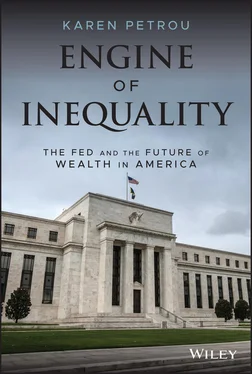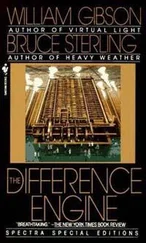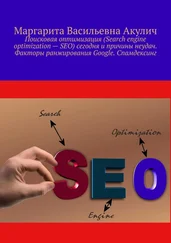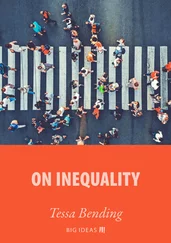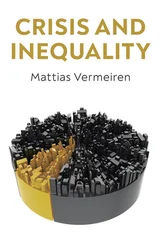After 2008, the Fed expected that low interest rates would make low-cost loans available to lower-income households, but Fed policy instead made the rich a lot richer and left everyone else still farther behind. One study estimated a total loss across the US economy of $2.4 trillion in savings accounts due to the very low interest rates that prevailed from 2008 through mid-2017. 42 The longer there are low rates, the farther most families fall behind.
Had the Fed “normalized” rates – that is, brought them closer to a rate with a sizeable positive edge over inflation – the dynamics of high-risk markets and hard-pressed families would have begun to correct to a more stable, equitable economy before COVID hit in 2020. Further, if rates had been higher, the Fed would have had more tools with which to confront renewed crisis. Since they weren't, it didn't, and the Fed threw still more trillions into the financial market, leading to record gains even as US unemployment ravaged one in four working households. 43 Monetary policy after 2008 directly contributed to post-crisis inequality; post-COVID policy made the inequality engine hurtle over average Americans in a race to save financial markets.
Financial policy subsumes more than monetary policy. It also includes all of the tough new rules bank regulators imposed since the crisis. It makes a lot of sense to make banks safer. But the inexorable nature of profit-maximization means that, when rules make lending to lower-income families unprofitable, banks don't make loans to lower-income families. Only higher-income Americans with stellar credit histories need apply.
Post-crisis rules may well have made US banks safer, but they have also changed the bank business model to one focused on wealth management, corporate and commercial real-estate lending, and other activities with little equality impact. Given the depth of the great financial crisis in 2008 and how close we then came to another Great Depression, it's easy to say that banks deserve every rule they got. But no matter how justified all of this regulatory retribution, quashing the capacity of banks to take deposits, make loans, and to operate the overall financial system leaves America with two choices: do without banks and the economic growth that depends on them, or rely instead on nonbanks, including giant technology companies such as Facebook and Amazon.
These tech giants are quickly filling the vacuum left behind by departing banks. They do a great job handling our demand for next-day sneakers and getting us messages from the boy next door in what seems like a nanosecond, but this doesn't necessarily mean that tech companies should be allowed to use the huge troves of personal data amassed in these businesses to provide equality-essential financial services. In the absence of safety-and-soundness rules and in light of all the privacy, conflict, and security problems at giant tech companies, a bank-free consumer-finance system could be a very high-risk consumer-finance system.
One doesn't have to look far to see the grand ambitions tech companies harbor in the financial-services arena. These huge companies already derive 11 percent of their revenue from financial services, 44 but many want to do more – lots more. For example, Facebook announced “Libra” in June 2019. 45 Libra combines the 2.6 billion or more users Facebook counts on its social-media platform with a “crypto-asset”-based currency. Libra touts all the lower-income households it would include in the financial-services marketplace. Yet crypto-assets are not just secret, but also very high risk. Who bears this risk? In Facebook's plan, customers – not Facebook – take the fall.
The ability of tech companies to know where you live, with whom, and so much else about us may encourage them to make you a loan a bank wouldn't touch. But all of this personal information also gives these companies the power to price financial services based on data stockpiles that differentiate the rich from everyone else. Given that these companies are at least as profit-hungry as banks, will they still make loans to lower-income people once they are sure which of their customers buys high-markup products? Will financing costs go up for even essential financial services because the big-tech company has enough data to charge higher-risk customers instead of cross-subsidizing transactions across the entire customer base? Will artificial intelligence really secure fair lending when it still can't even read the faces of people of color? How will tech companies cross-sell checking accounts and sneakers? That is, might we get a loan from a tech company, but only if we buy the products it produces at prices it demands under terms no federal regulator can control? One former US regulator has observed:
Today's economic activity is built on digital code. Digital information is the most important capital asset of the 21st century. Typically, Gilded Age assets were hard assets: industrial products that ended up being sold. Today's economy runs on the soft assets of computer algorithms that crunch vast amounts of data to produce as their product a new piece of information. The business of networks like Comcast, AT&T, and Verizon, and of platform service providers like Google, Facebook, and Amazon is not just connections or services, but the digital information about each of us that is collected via those activities and subsequently reused to target us with specific messages. 46
What if all this power to send us messages combines with the power to hold and manage, transfer, and even create our money?
Banks are barred from commerce because of manifest conflicts of interest and risks when a lender is also a manufacturer, advertiser, publisher, and retailer. Big-tech platform companies have no such constraints and can thus condition financial-product access on the purchase of other goods or services, alter pricing based on personal financial information or relationships, and otherwise transform financial services with far-reaching inequality impact.
How to Fix Financial Policy
The first fix is for the Fed to see America as it is, not as it was. Top Fed officials came of age in the 1970s and 1980s when America was among the most equal nations in the world. At that time, monetary-policy theory could rightly assume that aggregate data about income and wealth represented the vast majority of Americans.
Now, due to American inequality, the country as a whole no longer buys goods and services or invests as old models predict. 47 Vast differences in US educational levels have resulted in large numbers of low-skilled, low-wage workers who do not move where jobs are plentiful or otherwise respond to economic signals as conventional monetary-policy models anticipate. 48 We will see in Chapters 6and 7how antiquated analytics have been destructive not just to Fed thinking, but also to its ability to transmit monetary policy. Mistaken analytics have also done irreparable damage to equality because policy inadvertently but all too effectively benefits only the wealthiest among us.
The second fix goes to the heart of this mistaken monetary-policy construct, requiring the Fed to stop rescuing financial markets in trickle-down giant programs and instead to support ground-up growth. This starts with stepping back and letting markets function normally instead of rushing in to save them each time a little stress shows itself in a bad day on Wall Street. We will see in Chapter 6that the Fed has mistakenly made policy since the early 2000s based on an expectation that market rescues lead to a “wealth effect” that then benefits the rest of us after the wealthy have had their fill. Unprecedented inequality ever since is clear proof that the wealth effect is all too effective for the wealthy, but an accelerant to economic hardship for everyone else.
Читать дальше
